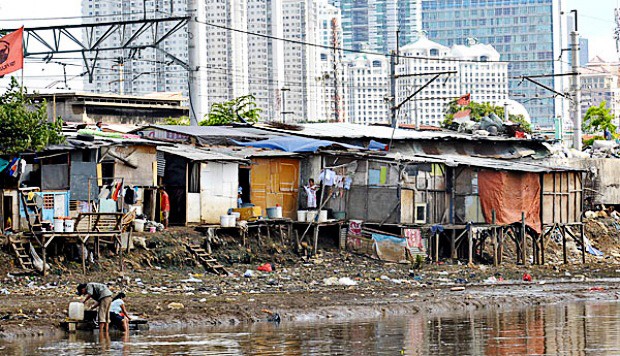Popular Reads
Top Results
Can't find what you're looking for?
View all search resultsPopular Reads
Top Results
Can't find what you're looking for?
View all search resultsGovernment to reform tax to fight widening inequality
Change text size
Gift Premium Articles
to Anyone
As inequality widens, the government is pushing for tax reforms to reduce the gap through coordination with other countries.
Finance Minister Sri Mulyani Indrawati said on Thursday that one of the solutions to fight inequality was improving the government’s ability to maximize tax collection from taxpayers.
The country’s tax-to-gross domestic product (GDP) ratio now stands at below 11 percent, the lowest among its regional peers, despite it being the largest economy in Southeast Asia.
The government has previously attributed the low ratio to the fact that many taxpayers opt to hide their assets overseas in tax haven countries, such as Panama or the Cayman Islands.
Sri Mulyani said many other countries also fell victim to tax evasion practices and that they had decided to work together to prevent tax evasion.
“The solution is the Automatic Exchange of Information [AEoI]. If there are Indonesian taxpayers who want to open a financial account in other countries, we will have the ability to access information regarding this,” she said during the launch of a joint report on inequality by non-governmental organizations INFID and Oxfam.
The AEoI is endorsed by the Organization for Economic Cooperation and Development (OECD) and the G-20. It allows participating countries to exchange taxpayer information with each other.
The global policy has been agreed by 101 countries and will go into effect next year.
The government plans to maximize the data exchange to push for higher tax revenues, which it will use to fund various healthcare, education and other social security services, to reduce inequality as its end goal.
“We must ensure that there will be no more places for tax evaders to hide their assets,” the minister added.
Sri Mulyani, who served as World Bank managing director, also urged the public to closely scrutinize the government in an attempt to create a credible and transparent institution, which will eventually help close the gap between the richest and the poorest, with uncorrupt policies.
During the event, INFID and Oxfam reported that Indonesia was facing a serious threat to its future prosperity with the country’s widening gap between the rich and poor.
(Read also: Wealth of four richest Indonesians equal to wealth of 100m poorest)
The report, titled “Towards a More Equal Indonesia,” finds that Indonesia has the sixth worst inequality of wealth in the world, with the wealthiest 1 percent of the population owning nearly half, or 49 percent, of total wealth in 2016.
The number of billionaires increased to 20 in 2016 from only one in 2002. Last year, the collective wealth of the richest four billionaires was US$25 billion, more than the total wealth of the bottom 40 percent or roughly 100 million people.
The report notes that both the Gini coefficient and the Palma index for consumption, though underestimating the true scale of inequality, show a marked upward trend over the past 20 years, with inequality in urban areas consistently higher than in rural areas.
“Indonesia is facing inequality challenges that are multidimensional. Nevertheless, President Joko Widodo has opportunities to prove that Indonesia can be a leading country in the global fight against inequality,” Steve Price Thomas, the advocacy and campaign director of Oxfam International, said.
INFID and Oxfam recommend that the government impose a 45 percent income tax rate for people with incomes above Rp 10 billion ($748,502) a year.
“The top tax band is set far too low, with anyone earning over Rp 500 million annually paying a tax rate of 30 percent, which means that those earning Rp 1 billion or Rp 100 billion pay the same rate,” the report says.
Developed countries tax their wealthy citizens higher, namely 50 percent in Belgium and 51.5 percent in Denmark.
By increasing the tax revenue potential, Indonesia could gather funds worth Rp 836 trillion that could be invested to public services to reduce the inequality, the report states.










